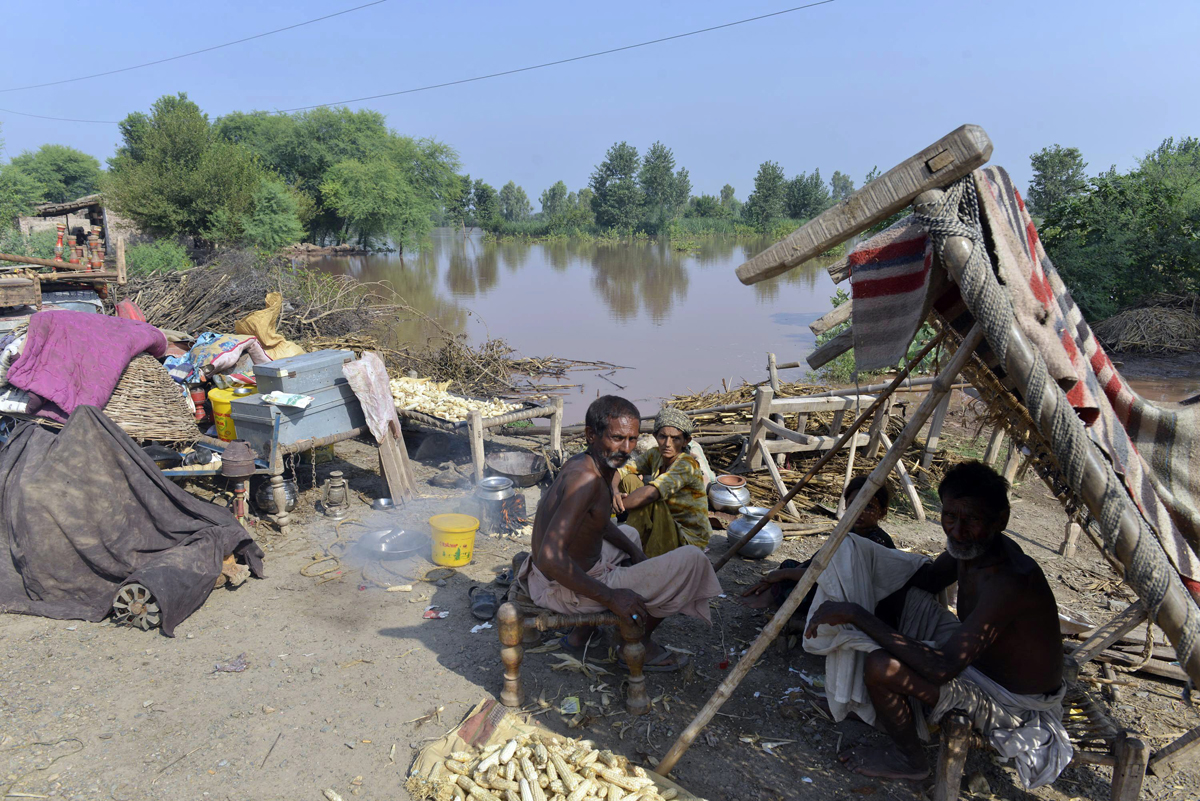
It is heartening that Prime Minister Nawaz Sharif has responded warmly to his Indian counterpart’s concern. A collaboration on the flood relief front is opportune not only because it allows for concerted efforts on the disaster-mitigation level, but also because it fosters camaraderie at a time when Pakistan- India relations have been marred by bitterness owing to the calling off of critical meetings, LoC violations and tiff on the construction of the Kishanganga Dam. As it is, since climate change and natural disasters acknowledge no state boundaries, particularly in the geography of the subcontinent where common river basins are straddled between the two states, inter-state efforts are perhaps the only effective way to mitigate disaster. With weak infrastructure and a poor, agrarian population that is almost completely dependent on the rains and rivers for livelihood, both India and Pakistan are acutely vulnerable and hence it makes sense for them to cooperate on this issue.
Emergency relief is a start. A freer exchange of aid across the border may help rescue teams in assisting victims that would otherwise be inaccessible. But the need for cooperation on disaster relief and preparation is precisely when there isn’t one, so that the two countries have adequate time to prepare. Cooperation between India and Pakistan on water-related issues is a necessity beyond just the need of the hour. India’s decision to build the Kishanganga dam has tremendous consequences for Pakistan and its already inconsistent water supply. These issues are complex, and require extensive research, planning, negotiation and cooperation. Both countries need to build on this current sentiment if they have any hope of mitigating future disasters that, scientifically, are only going to be more frequent and more intense.
Published in The Express Tribune, September 10th, 2014.
Like Opinion & Editorial on Facebook, follow @ETOpEd on Twitter to receive all updates on all our daily pieces.
COMMENTS (9)
Comments are moderated and generally will be posted if they are on-topic and not abusive.
For more information, please see our Comments FAQ
1730806656-0/BeFunky-collage-(23)1730806656-0-405x300.webp)









1730706072-0/Copy-of-Untitled-(2)1730706072-0-270x192.webp)
@Haider: These floods are from Chenab. Only dam there is Baglihar which is run of the river dam meaning that it has no storage capacity. It is nothing but outright lies to claim that India had any hand in the floods. Most of the water has anyway been on Pakistani soil which is flooding Pakistan. These are the worst floods in 106 years and instead of helping the countrymen, Hafiz Saeed is using such a major human tragedy for his own political purpose and for hate mongering.
For shame.
ET what I have stated is factually coorect. Please publish.Especially when you can publish @Haider's hateful lies.
On the Contrary if Pak gave up its paranoia and worked on building dams on the rivers, the floods would not have been so devastating down-stream in Pak Punjab. But then Pak establishment, Military and mullahs have been paranoid about India since Partition. To blame India for floods and call it Water Terrorism is the example of what kind of sick minds thrive in Pak
Why is it “encouraging” of Pakistan Prime Minister offering “help” to foreigners in India even while Finance Minister of Pakistan is begging for help from foreign donors for rehabilitating Pushtun / Pathan IDP’s created by Pakistan’s Punjabi dominated Military in NWA? There is nothing “encouraging” about Pakistan swaggering around and offering “help” to foreigners while begging aid for Pakistani’s and indeed for this reason Pakistan’s offer of help is not going to raise stature of Pakistan among other countries. All it is going to do is tag Pakistan for indulging in braggart behaviour as an unbecoming and ungracious riposte to India’s generous offer of help. Doubly so when this happening at a time when Pakistan has gone cap in hand to the IMF for a financial bail-out! Those who have missed the above story can read it on Express Tribune at the below link:
http://tribune.com.pk/story/759832/sos-call-donors-urged-to-help-rehabilitate-idps/
Words of wisdom indeed on matters of collaboration on disaster relief. India & Pak have voiced the right sentiments correct way this time unlike during the last disaster when earthquake hit Kashmir. After paying 700-800 UK-pounds per hour per British lawyer hired by Pak Govt if Kishanganga case was lost at International Court of Arbitration (ICA) obviously Pakistan doesn't have a case. If it did have one, where is any need for discussion-Pak can file an appeal immediately against ICA award to International Court of Justice (ICJ). It appears Pak is not confident of winning the case at ICJ either hence this urgent need to negotiate with India. Indian govt will be skinned by Parliament if it gives away India's interests but even if Delhi were to try to accommodate Islamabad without damaging self, where is the incentive?
This editorial is like the proverbial camel: You give an inch and it wants to take a mile.
India being the upper riparian does not need to consult with Pakistan to build pro-active measures for flood control. If Pakistan gets out of its sense of entitlement, then the two can work together.
Not sure why ou dragged Kishanganga in the discussion. Pakistan took India to an independent international arbitrator who has ruled thatIndia can build the dam with minor design changes. India has already incorporated the changes in design directed. The notion that uou can o to a court and then when the decision is not in your favor, ask the other party to do things your way anyway, is uniquely Palistani. This sense of enitlement is what stops problems from getting resolved.
Sad part is that people like Hafiz Saeed are misleading public by telling that water bomb has been let loose on Pakistan by India. Water and flood management should become the top priority agenda of SAARC. Let us hope this will not be linked with so called core issue of Kashmir. India is working on interlinking the rivers. I wrote to PM Modi via his public website that neighboring countries should also be involved in the project wherever common rivers are involved. Lot can be done on water and flood management by SAARC countries jointly.